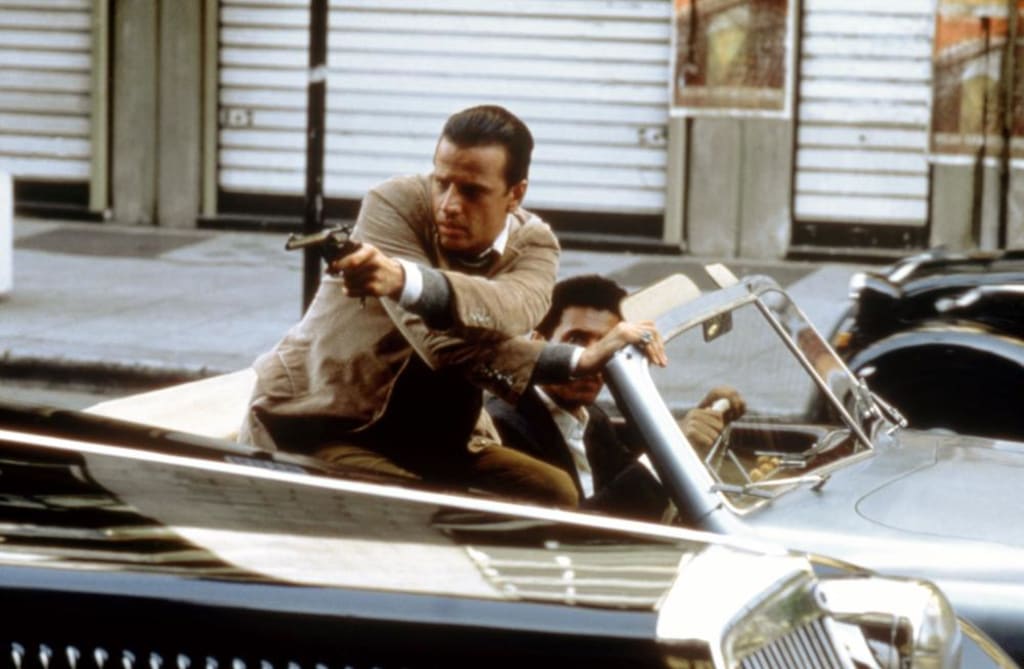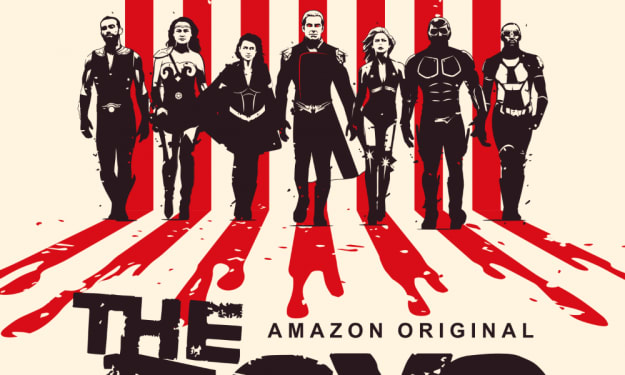Book Review | The Sicilian.
"A man's first duty is to keep himself alive. Then comes what everyone calls honour." - Mario Puzo

The Sicilian is a novel written by Mario Puzo and published in 1984. Who is Mario Puzo? Very simple: he is the author of The Godfather. This distinction is enough to make Puzo instantly recognisable. After all, The Godfather is easily one of the most influential crime novels of all time. When people are asked to list works inspired by the Italian mafia, this book will often come first. Considering The Godfather's status, it should come as no surprise that The Sicilian has a hard time competing even though it is considered as the sequel to The Godfather. Two things can explain this: the different eras in which the novels were published (the sixties for The Godfather, the eighties for The Sicilian) and the lesser impact of the movie adaptation of The Sicilian compared to that of The Godfather.
Despite The Sicilian's smaller popularity compared to its illustrious prequel, the novel hits harder on various fronts. Honour and pride, as ideas and attitudes, are explored through different angles and go beyond vendettas and murderous conspiracies. In the universe of The Sicilian, social class and social justice are deeply linked to these concepts. The harsh realities faced by lower class people are presented with striking realism and various degrees of violence. For the poor, there is no escape from economic hardship and yet they manage to have their own small victories against an oppressive police and a system that is corrupt to the bone. This does nothing to change their circumstances but it is enough to create a man that becomes a spectacular opposition to the establishment. This man is Salvatore Giuliano. The Sicilian is based on the life of this flamboyant Italian outlaw who was murdered in 1950 at the age of 27.
In the novel, Giuliano is described as "the bravest, the most honourable, the strongest, the young man who inspired the most respect" in Montelepre, his native village in Sicily. He is also seen as having "the inborn tactical sense of a guerilla soldier". This feature proves decisive in establishing him as an unpredictable and relentless opponent against much bigger forces. The latter range from the local mafia to the Italian government itself. Giuliano uses novel strategies and shocking boldness to beat them on their own turfs. His success is based on the understanding that the power of his enemies depends on lines not being crossed. These lines are the invisible boundaries that separate them from common citizens. Anyone who tries to violate these boundaries will face torture or death. Salvatore Giuliano upsets the historical power dynamics not only by crossing these lines but by erasing them, at least temporarily, altogether. He masterfully uses the contempt that his adversaries have towards him to his own advantage. Even though Giuliano has evolved into a powerful warlord, they still believe him to be a lowly peasant and refuse to surrender when given the opportunity. This is the scene when he executes six mafia chiefs: "Don Siano stared at Giuliano with contempt on his gray face. Buccilla seemed a little astonished, as if he were surprised by so much ill feeling in an affair that did not really concern him. The other Dons looked him coldly in the eye as ultimate men of respect must do. Giuliano knew them all by reputation; as a child he had feared some of these men, especially Don Siano. Now he had humiliated them before all Sicily and they would never forgive him. They would be deadly enemies forever. He knew what he must do, but he knew also that they were beloved husbands and fathers, that their children would weep for them. They gazed past him proudly, giving no signs of fear. Their message was clear. Let Giuliano do what he had to do, if he had the belly for it."
Despite his exploits and as compelling a protagonist as Salvatore Giuliano is he is not necessarily the most interesting character in The Sicilian. He is noble, generous, ruthless...but also quite black and white in terms of personality. Aspanu Pisciotta, his right hand man, Don Croce Malo, his most fearsome enemy and several others have layers of complexity that seem more gripping. This could be due to Giuliano being presented as a Robin Hood variant. He kills the bad guys, steals from the rich to give to the poor, looks after his family, is loyal to his friends...these are all classic good man traits within a dramatic story. Perhaps Mario Puzo did not want to tarnish the legend of the man who was once described as a "social bandit" by the British historian Eric Hobsbawn. It is clear that the people who surround Giuliano are not as straightforward. Even though they are devoted to him and are willing to risk their lives for the cause that he defends, their inner demons remain extremely fierce. To their credit, they know how to use these demons to get results but they are unaware of the extent to which they are under their influence. This is especially true when it comes to Aspanu Pisciotta, Giuliano's childhood friend and most loyal supporter. As cold and calculating as he is, Pisciotta is also prone to vices that caught the attention of Don Croce Malo and ultimately led to his undoing: "In his cell, Aspanu Pisciotta took the bottle of streptomycin and broke the elaborate seals. He measured out his dose and swallowed it. He was surprised at the bitterness of the taste for that one second that he could think, then his body bent backward in a great arc and was thrown to the floor. He let out a scream that brought the guard running to the cell door. Pisciotta struggled to his feet, fighting off agonizing pain that wracked his body. There was a terrible rawness in his throat and he staggered toward the jar of olive oil. His body arched again and screamed to the guard, "I've been poisoned. Help me, help me." And then before he fell again there was a great furiousness that he had finally been outwitted by Don Croce".
Compared to The Godfather, The Sicilian is a longer read. My personal assessment leads me to believe that this is due to the extensive effort made by Mario Puzo to describe the setting within which the story takes place. This setting is Sicily during the forties. It is fair to say that this effort was necessary. After all, who can grasp this era in the largest island of the Mediterranean without a few solid bearings first? That of course is unless you are Sicilian yourself. Perhaps you are like Aspanu Pisciotta: "A man who could never be transplanted from the earth and mountains of Sicily. He was too fierce, too bloodthirsty; his colouring, his voice were all of Sicily. He could never trust a strange land".
Good luck,
Ashley Boolell | www.ashleyboolell.com
Please check my latest novel called Market Dystopia.







Comments
There are no comments for this story
Be the first to respond and start the conversation.